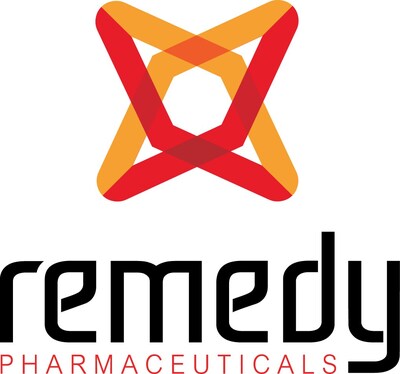Remedy Pharmaceuticals announced that prespecified subgroup analyses from the Phase 3 CHARM clinical trial of CIRARA (IV glibenclamide) showed meaningful improvements in functional outcomes on the modified Rankin Scale (mRS), which were further validated in post hoc analyses.
|
NEW YORK, May 29, 2024 /PRNewswire/ -- Remedy Pharmaceuticals, Inc., a pioneer in stroke drug development, announced that prespecified subgroup analyses from the Phase 3 CHARM clinical trial of CIRARA (IV glibenclamide) showed meaningful improvements in functional outcomes on the modified Rankin Scale (mRS), which were further validated in post hoc analyses. The findings follow the early termination of the pivotal Phase 3 trial by Cambridge-based Biogen after a strategic realignment of resources, and the return of the program to Remedy. The CHARM clinical trial was a multicenter, multinational, double-blind, randomized, placebo-controlled Phase 3 study involving patients aged 18-85 with a large hemispheric infarction (LHI), as indicated by an Alberta Stroke Program Early Computed Tomographic (CT) Score (ASPECTS) value of 1-5 (on a scale of 0-10) or an ischemic core volume of 80-300 ml by CT perfusion (CTP) or magnetic resonance imaging (MRI) diffusion weighted imaging. Patients were eligible if study drug was expected to start within 10 hours after they were last known well and were randomly assigned in a 1:1 ratio of CIRARA or placebo. A total of 535 patients were enrolled, including 431 patients aged 18-70 (the efficacy analysis population) and 81 patients aged 71-85. Despite neutral top-line results, in pre-specified analyses, patients who received rtPA, underwent endovascular thrombectomy (EVT), were enrolled using CTP/MRI, had wake-up strokes, or were enrolled in the U.S., all had directionally improved functional outcomes in favor of CIRARA. A pre-specified analysis in patients with an NIH Stroke Scale (NIHSS) ≤20 (n=274) yielded statistically significant improvements in functional outcomes (Odds Ratio 1.66, p=0.03). With EVT therapy increasingly used in LHI, the Odds Ratio of 1.75 in the EVT subset, while not statistically significant, was particularly encouraging. Building on these findings, post hoc analyses examining the impact of stroke severity on outcomes were performed and revealed significant findings:
Dr. W. Taylor Kimberly, MD, PhD., Chief, Division of Neurocritical Care at Massachusetts General Hospital, Associate Professor of Neurology at Harvard Medical School and co-principal investigator on the CHARM study, commented, "These findings are very promising and suggest that CIRARA is complementary to current standard of care, such as tPA and endovascular therapy, and could be the next big advancement in the treatment of large hemispheric infarctions." "Mortality and long-term disability remain stubbornly high, especially in cases of severe stroke," notes Kevin Sheth, MD, Professor of Neurology and Neurosurgery and a Director of the Yale Center for Brain & Mind Health, and co-principal investigator on the CHARM study. "CIRARA could help the tens of thousands of patients who fall victim to LHI each year have a fighting chance to live and enjoy productive lives." "Advancing medicine cannot happen without the truly inspiring dedication of participants, their families, and the clinical investigators around the world," said Sven Jacobson CEO of Remedy. "We thank Biogen for investing over $200 million in this program, and express our gratitude to all the people involved in the CHARM study who have brought us that much closer to achieving our goal of advancing medicine for those in desperate need." Data from the CHARM study was presented at the 10th European Stroke Organization Conference, May 15-17 in Basel, Switzerland. ABOUT REMEDY New York-based Remedy Pharmaceuticals, Inc. is a privately-held, clinical stage pharmaceutical company focused on developing and bringing lifesaving treatments to people affected by acute central nervous system (CNS) disease and injuries. The company is planning a confirmatory Phase 3 study of CIRARA in LHI. Contact:
SOURCE Remedy Pharmaceuticals |





